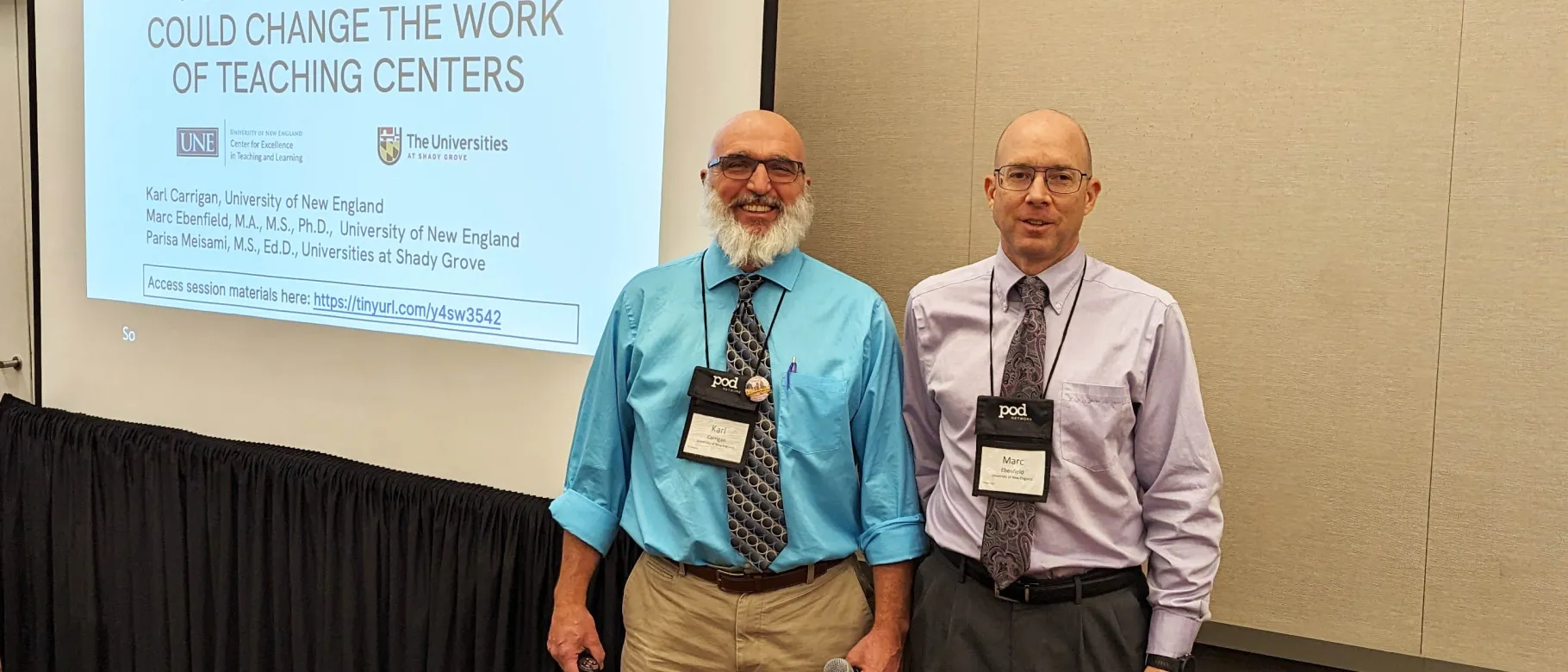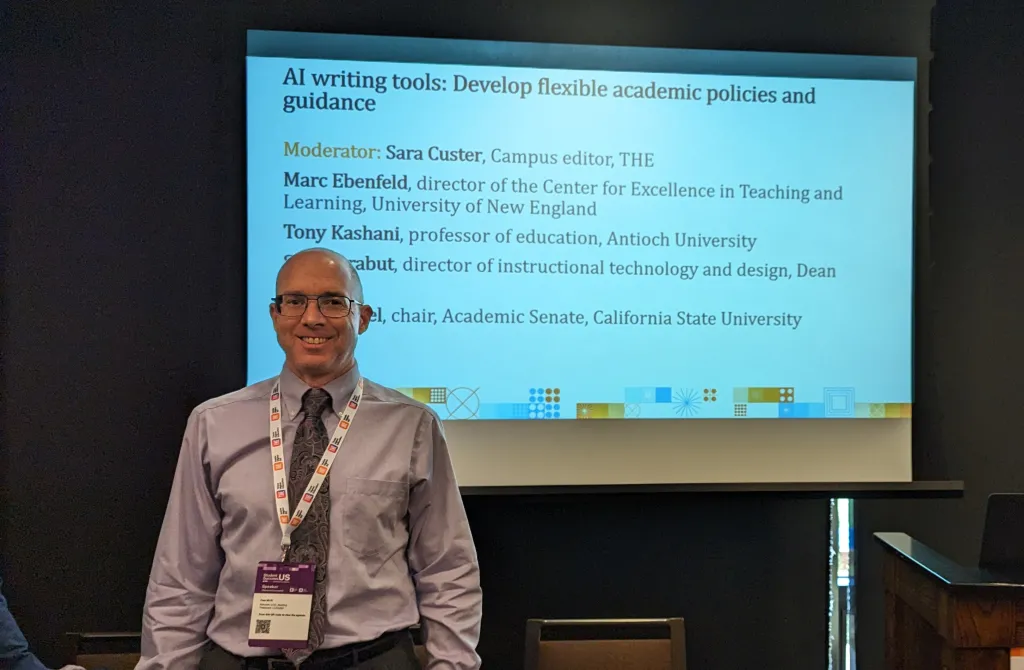CETL well represented at two national higher ed conferences

The University of New England’s Center for Excellence in Teaching and Learning (CETL) was prominently featured at two distinct conferences in November, in each case presenting on the impact of artificial intelligence (AI), specifically large language models (LLM), on higher education.
CETL Director Marc Ebenfield, Ph.D., was invited to speak at the Student Success U.S. conference, held in Los Angeles from Nov. 7 to 9. The conference featured administrators, educators, and student support specialists from around the world.
Ebenfield participated in a panel discussion titled “AI writing tools: Develop flexible academic policies and guidance.” The panel addressed the challenges and opportunities these tools present to faculty members striving to maintain academic integrity and foster innovative teaching methods. Key discussion points included:
- Strategies for equipping educators with the knowledge and resources to effectively integrate AI writing tools into their teaching practices
- Techniques to ensure academic policies remain relevant and adaptable in the face of rapidly evolving AI technologies
- Ethical and productive use of AI by students, including guidelines and best practices to encourage responsible and beneficial use of AI tools in student learning
Ebenfield and Karl Carrigan, CETL coordinator and instructional technologist, also attended the 48th annual POD Network conference, a conference of faculty development professionals that envisioned what the future of educational development might look like amid rapid changes in our lives, institutions, and societies.
Ebenfield and Carrigan conducted an interactive workshop, “Forecasting How AI Could Change the Work of Teaching Centers.” The session, attended by 40 faculty developers from around the globe, introduced a process used in strategic foresight called “drivers and signals.”
Workshop participants used the process to create short scenarios of potential futures in order to come to a better understanding of how to help institutions and centers navigate a future with AI. The workshop received positive reviews and was featured in the blog Agile Learning.

Ebenfield at the Student Success U.S. conference